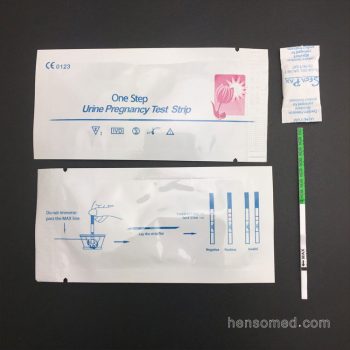
Urine Pregnancy Test: A Comprehensive Guide
Introduction
A urine pregnancy test is a simple and convenient way to determine whether a woman is pregnant. It detects the presence of human chorionic gonadotropin (hCG), a hormone produced by the placenta during pregnancy. Urine pregnancy tests are widely available over-the-counter and can be performed at home.
How Do Urine Pregnancy Tests Work?
Urine pregnancy tests work by detecting the presence of hCG in the urine. hCG is produced by the placenta after the implantation of a fertilized egg into the uterus. The levels of hCG in the urine increase rapidly during the early stages of pregnancy, reaching a peak around 8-12 weeks.
Most urine pregnancy tests use monoclonal antibodies that are specific for hCG. When the urine sample is applied to the test strip, the antibodies bind to any hCG present in the urine. If hCG is present, a visible line will appear on the test strip, indicating a positive result.
Types of Urine Pregnancy Tests
There are two main types of urine pregnancy tests:
- Qualitative tests: These tests simply indicate whether hCG is present in the urine. They do not provide any information about the amount of hCG present.
- Quantitative tests: These tests measure the amount of hCG in the urine. They can be used to monitor the progression of a pregnancy or to diagnose certain pregnancy-related conditions.
Accuracy of Urine Pregnancy Tests
Urine pregnancy tests are generally very accurate. However, there are some factors that can affect the accuracy of the test, including:
- Timing of the test: Urine pregnancy tests are most accurate when performed after a missed period. Testing too early may result in a false negative result.
- Urine dilution: Diluted urine can make it more difficult to detect hCG. It is important to follow the test instructions carefully and to use a clean urine sample.
- Certain medications: Some medications, such as diuretics and antihistamines, can interfere with urine pregnancy tests. It is important to inform your doctor if you are taking any medications before performing a urine pregnancy test.
Interpreting Urine Pregnancy Test Results
Urine pregnancy tests typically display one or two lines:
- One line: A single line indicates a negative result. This means that no hCG was detected in the urine, and you are likely not pregnant.
- Two lines: Two lines indicate a positive result. This means that hCG was detected in the urine, and you are likely pregnant.
If you are unsure about the results of your urine pregnancy test, it is important to repeat the test or consult with your doctor.
When to Take a Urine Pregnancy Test
The best time to take a urine pregnancy test is after a missed period. However, some tests can detect hCG as early as 10 days after ovulation. If you are experiencing symptoms of pregnancy, such as nausea, vomiting, or breast tenderness, you may want to take a urine pregnancy test even if you have not missed your period.
Follow-Up After a Positive Urine Pregnancy Test
If you get a positive urine pregnancy test, it is important to follow up with your doctor. Your doctor will perform a physical exam and order blood tests to confirm the pregnancy and to rule out any underlying medical conditions. Your doctor will also discuss your options for prenatal care and delivery.
Conclusion
Urine pregnancy tests are a simple and convenient way to determine whether a woman is pregnant. They are generally very accurate, but it is important to follow the test instructions carefully and to interpret the results correctly. If you get a positive urine pregnancy test, it is important to follow up with your doctor for confirmation and to discuss your options for prenatal care and delivery.